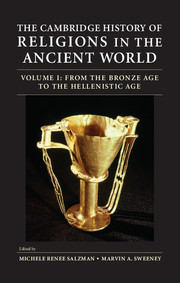Book contents
- Frontmatter
- Contents
- List of Figures and Maps
- List of Contributors
- List of Abbreviations
- Acknowledgments
- Introduction to Volumes I and II
- Introduction to Volume I
- Part I Mesopotamia and the Near East
- Part II Egypt and North Africa
- Part III Greece and the Eastern Mediterranean
- Part IV The Western Mediterranean and Europe
- Suggestions for Further Reading
- General Index
- Index of Citations
- Frontmatter
- Contents
- List of Figures and Maps
- List of Contributors
- List of Abbreviations
- Introduction to Volume II
- Part I Iran and the Near East
- Part II Egypt and North Africa
- Part III Greece and Asia Minor
- Part IV Italy, Roman Gaul, and Spain
- Suggestions for Further Reading
- General Index
- Index of Citations
- References
Introduction to Volume I
Published online by Cambridge University Press: 05 October 2013
- Frontmatter
- Contents
- List of Figures and Maps
- List of Contributors
- List of Abbreviations
- Acknowledgments
- Introduction to Volumes I and II
- Introduction to Volume I
- Part I Mesopotamia and the Near East
- Part II Egypt and North Africa
- Part III Greece and the Eastern Mediterranean
- Part IV The Western Mediterranean and Europe
- Suggestions for Further Reading
- General Index
- Index of Citations
- Frontmatter
- Contents
- List of Figures and Maps
- List of Contributors
- List of Abbreviations
- Introduction to Volume II
- Part I Iran and the Near East
- Part II Egypt and North Africa
- Part III Greece and Asia Minor
- Part IV Italy, Roman Gaul, and Spain
- Suggestions for Further Reading
- General Index
- Index of Citations
- References
Summary
The conquest of the ancient Near East by Alexander the Great of Macedonia in 333–323 bce constitutes a major turning point in the religious history of the ancient Near Eastern and Mediterranean worlds. Alexander’s conquest marked the first time that a European culture was able to gain political ascendency over the Near East. It presented the opportunity for Alexander and his successors to change profoundly the religious landscape of the ancient world through the promotion of Greek or Hellenistic culture and religion as the ideal form of human life. The introduction of Hellenization to the ancient Near Eastern world laid the groundwork for major change in the religions of the ancient world insofar as the melding of Hellenistic and Near Eastern cultures and religions ultimately produced forms of Judaism, Christianity, and Islam that now constitute the major religious traditions of the western world.
Interpreters of religion have had a mixed reaction to the religious impact of Alexander’s conquest of the ancient Near East. On the one hand, many scholars hail the Hellenistic period as a time of great progress in which the light of Hellenistic culture, particularly its values, awakened the ancient Near Eastern world, enabling it to pursue new forms of human religious, cultural, and political expression and achievement. Indeed, Greek thought is widely recognized as the one of the primary foundations for the western intellectual tradition. On the other hand, many other scholars view the promotion of Hellenization as an effort to subvert the nations and cultures that now came under Greek rule and to mold them into a relatively cohesive culture that would serve its new Hellenistic masters. Indeed, the Romans, who were always well known for their willingness to learn the lessons of their predecessors, likewise employed Hellenization as an important tool and weapon to serve their own efforts to unite and dominate the ancient Mediterranean and Near Eastern worlds.
- Type
- Chapter
- Information
- The Cambridge History of Religions in the Ancient World , pp. 23 - 28Publisher: Cambridge University PressPrint publication year: 2013



